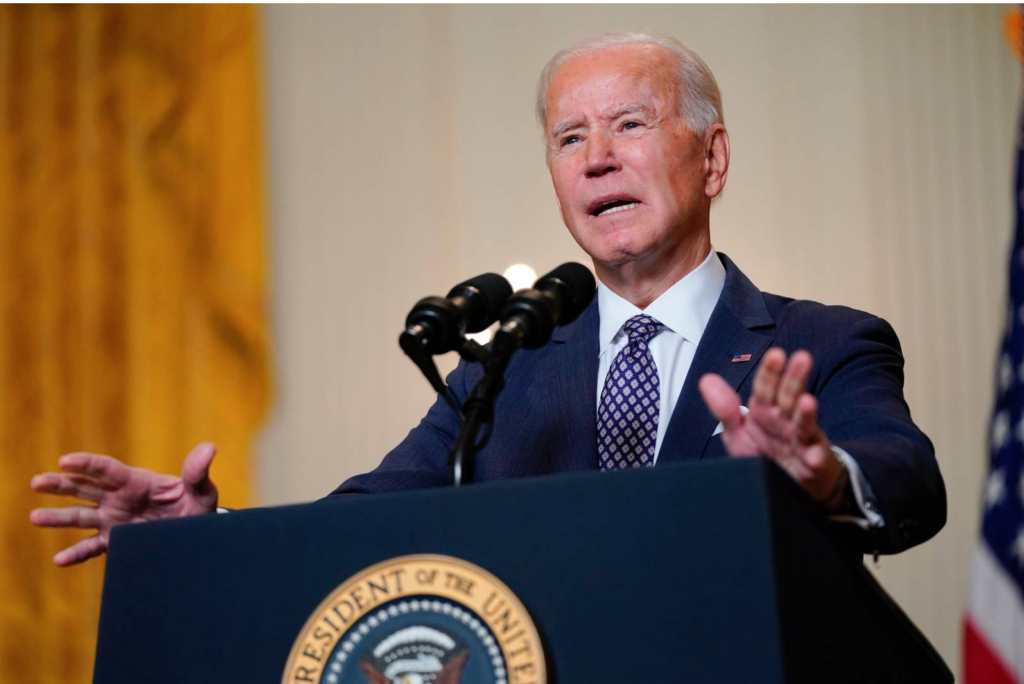It’s Crunch Time: A Week of Developments Puts Biden Administration to the Test

Image Courtesy of Time Magazine
By Justin Lamoureux
Millions of Americans have spent the last week dealing with record cold temperatures, but for the Biden administration, things are only heating up. A series of events have unfolded that promise to evolve with time but are still guaranteed to yield major influence over Biden’s prospects.
Biden’s capability to respond to natural disasters was tested this week as Texans grappled with the effects of a devastating winter storm. Widespread power outages, extreme cold, and burst pipes across the state have compelled the Biden administration to issue a declaration of “major disaster.” This order grants federal funding to homeowners in Texas; this includes grants for temporary housing and home repairs, as well as low-cost loans to cover uninsured property losses.
Biden’s declaration grants access to aid residents of 108 Texas counties. Gov. Abbott had requested a major disaster declaration for all 254 of the state’s counties. Additionally, the White House is working closely with Abbott and other statewide officials to monitor the situation and assess the damage. The White House reported on Tuesday that President Biden and First Lady Jill Biden are planning to visit Texas on Friday to provide extra support on the ground.
As the first natural disaster of his presidency unfolded at home, Biden also devoted time to foreign policy endeavors; this included a call to Israeli Prime Minister Benjamin Netanyahu last Wednesday. Delayed efforts by the Biden administration to establish a dialogue with Israel have attracted criticism, with many Israeli government officials perceiving the limited communication as a “snub.” Said allegations were promptly dismissed by the White House.
According to a document released by the White House, the two leaders discussed expanding the peace accords, and other regional challenges unique to the Middle East. This includes concerns regarding Iran, which has an ongoing nuclear development program, and is suspected of meddling in U.S. elections. Biden hopes to reprise the country’s involvement with the Iran nuclear deal from which his predecessor withdrew the U.S. in 2018.
Former President Trump enjoyed a close international alliance with Netanyahu; he moved the U.S. Embassy to Jerusalem from Tel Aviv and recognized Israeli sovereignty over the Golan Heights. Obama, meanwhile, had a tense working relationship with Netanyahu; this stemmed primarily from Obama’s objections to Israeli settlement construction on Palestinian territory. Biden’s impact on diplomatic relations with Israel has yet to be seen, but his recent conversation with Netanyahu resulted in a seemingly positive dialogue.
Without a doubt, the most noteworthy development of the last week is the President’s pledge that 600 million COVID-19 vaccine doses will be available by the end of July. This would be a substantial improvement over the current figures: so far, 72 million doses have been allocated to states, 55 million of which have been administered. These numbers are expected to improve, however, as Moderna intends to produce 100 million additional doses by the end of next month.
What’s more, AstraZeneca is in the process of receiving regulatory approval for their own vaccines; if they are approved, it would further expand the country’s vaccine pool. This would help compensate for Johnson & Johnson falling short on its pledge to supply the nation with 10 million doses of their vaccine by late February. In terms of distribution, Biden recently activated the National Guard to assist with administering vaccines at a number of select locations in each state.
Needless to say, the Biden administration has just emerged from a very eventful week. Virtually every realm was marked by a significant event, which tested the President’s capabilities. A catastrophic situation in Texas and the renewal of ties to Israel both challenge Biden to retain (or defy) precedents established by previous administrations. The response to COVID-19, meanwhile, constitutes a unique litmus test that may come to define his presidency: resilience in a time of major crisis. Regardless of specific outcomes, though, one fact is certain: this is a presidential transition like no other.





